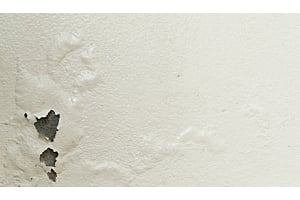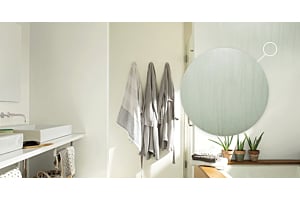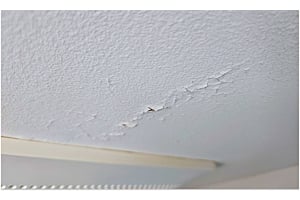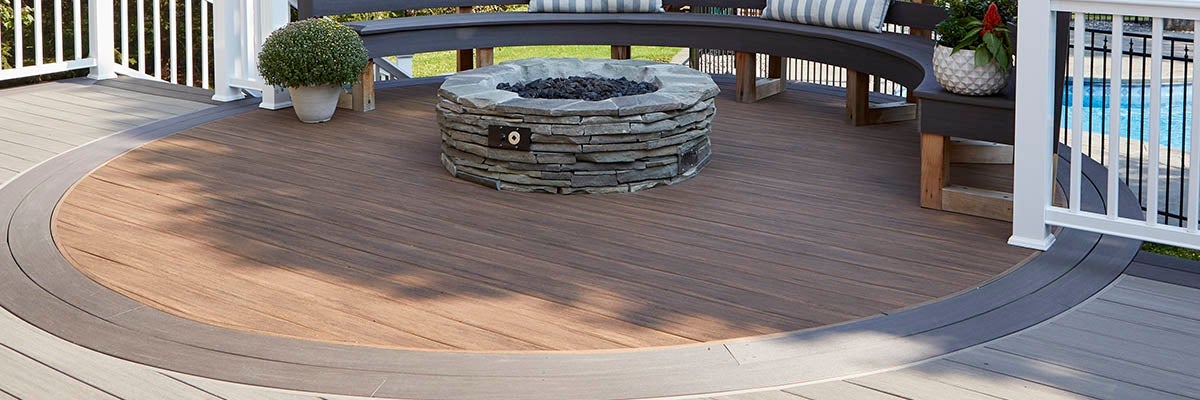
Since engineered decking materials were first introduced a few decades ago, the quality and product availability has grown tremendously. Homeowners today can choose between a variety of PVC and composite material options, as well as dozens of realistic colors and styles that offer superior lifespan and lower maintenance compared to traditional wood. Both composite decking and PVC decking are made from polymers and recycled materials, and both are durable and weather-resistant. However, there are key differences between the two materials. In this guide we’ll compare PVC vs. composite decking to help you find the type of decking that’s right for your needs and budget.
Before we go into detailed information about each material, let’s look at a quick comparison:
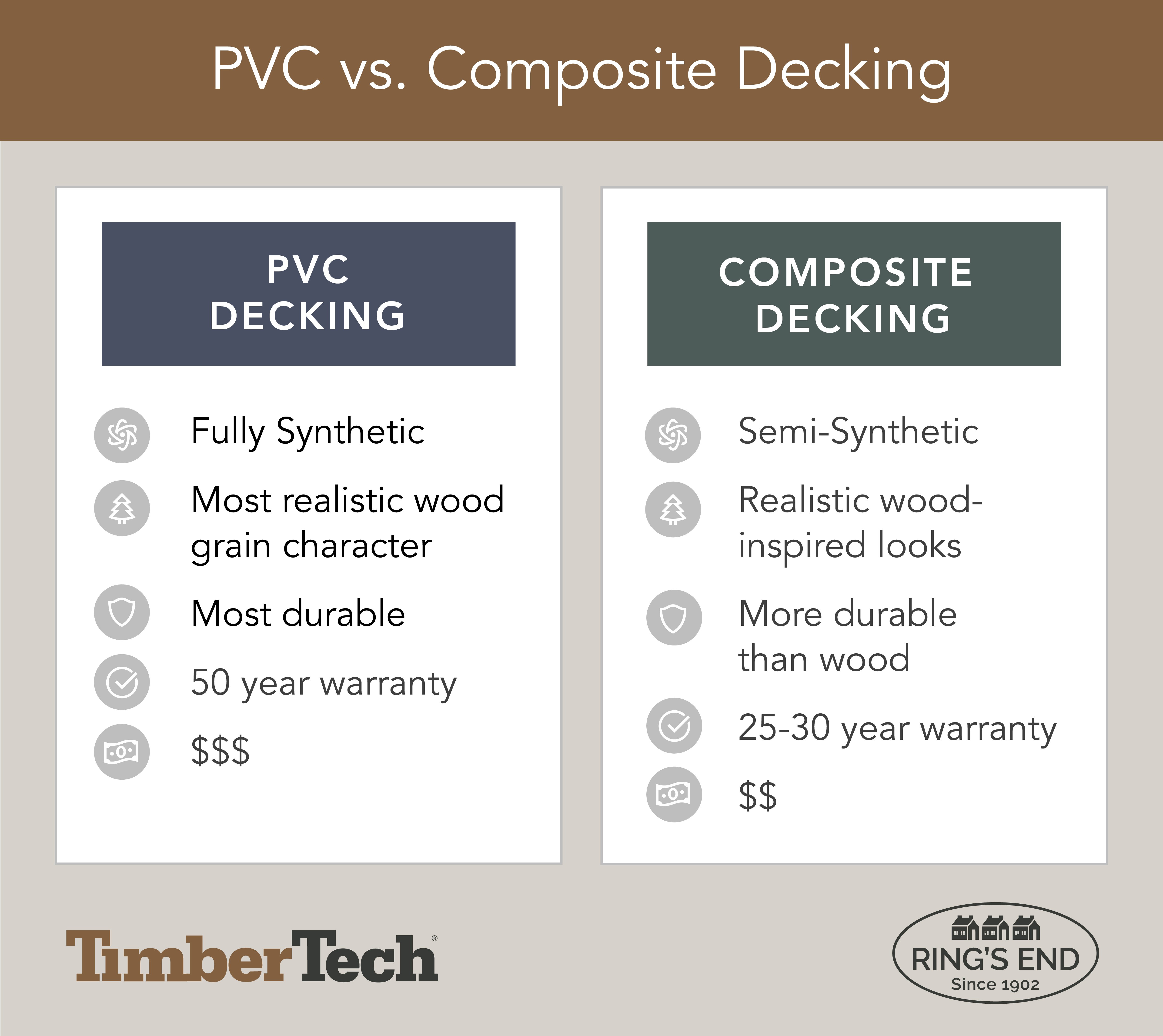
PVC Decking
What is PVC Decking?
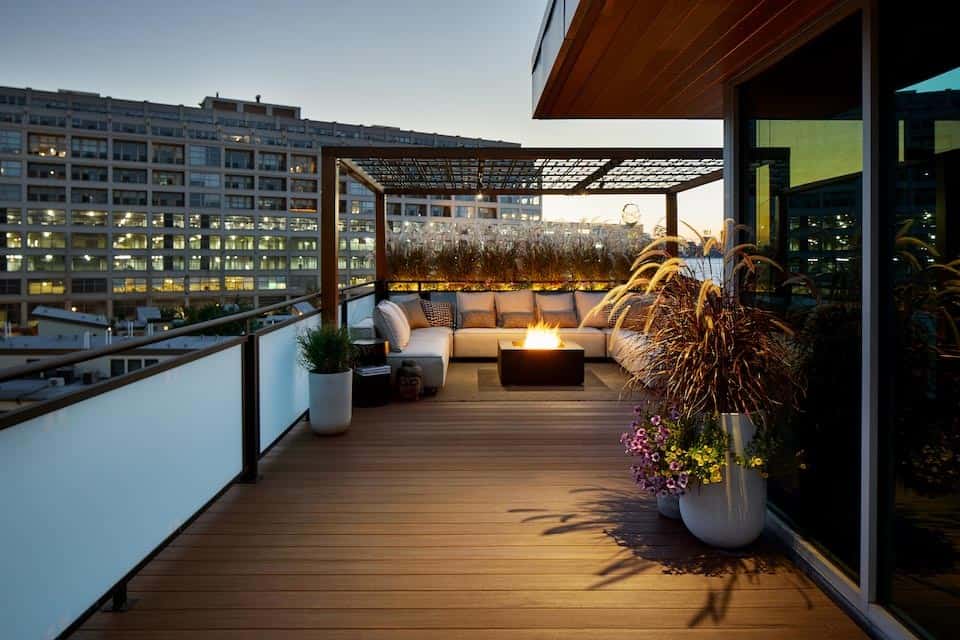
PVC or polyvinyl chloride decking is an eco-friendly engineered product that’s made from 100% plastic polymers. PVC decking has been around for decades; the earliest versions had issues with peeling, staining, heat buildup and slippery surfaces, so many consumers are still wary of it today. However, the newest PVC decking has solved these problems with improved polymers and capped board designs.
Recycled plastics and new polymers are combined to create extruded deck boards with a polymer cap for extra weather protection. PVC decking is low maintenance, mold-resistant and impervious to insects. The polymers in PVC deck boards create the most realistic wood looks in a broader range of colors than any other decking material. For example, PVC decking manufacturer TimberTech combines realistic wire-brushed and hand-scraped wood patterns in their premium polymer decking line. Their extensive range of grain patterns offers homeowners the natural look of wood with the superior durability of PVC.
For more details, check out our Ultimate Guide to PVC Decking.
PVC Decking Pros & Cons
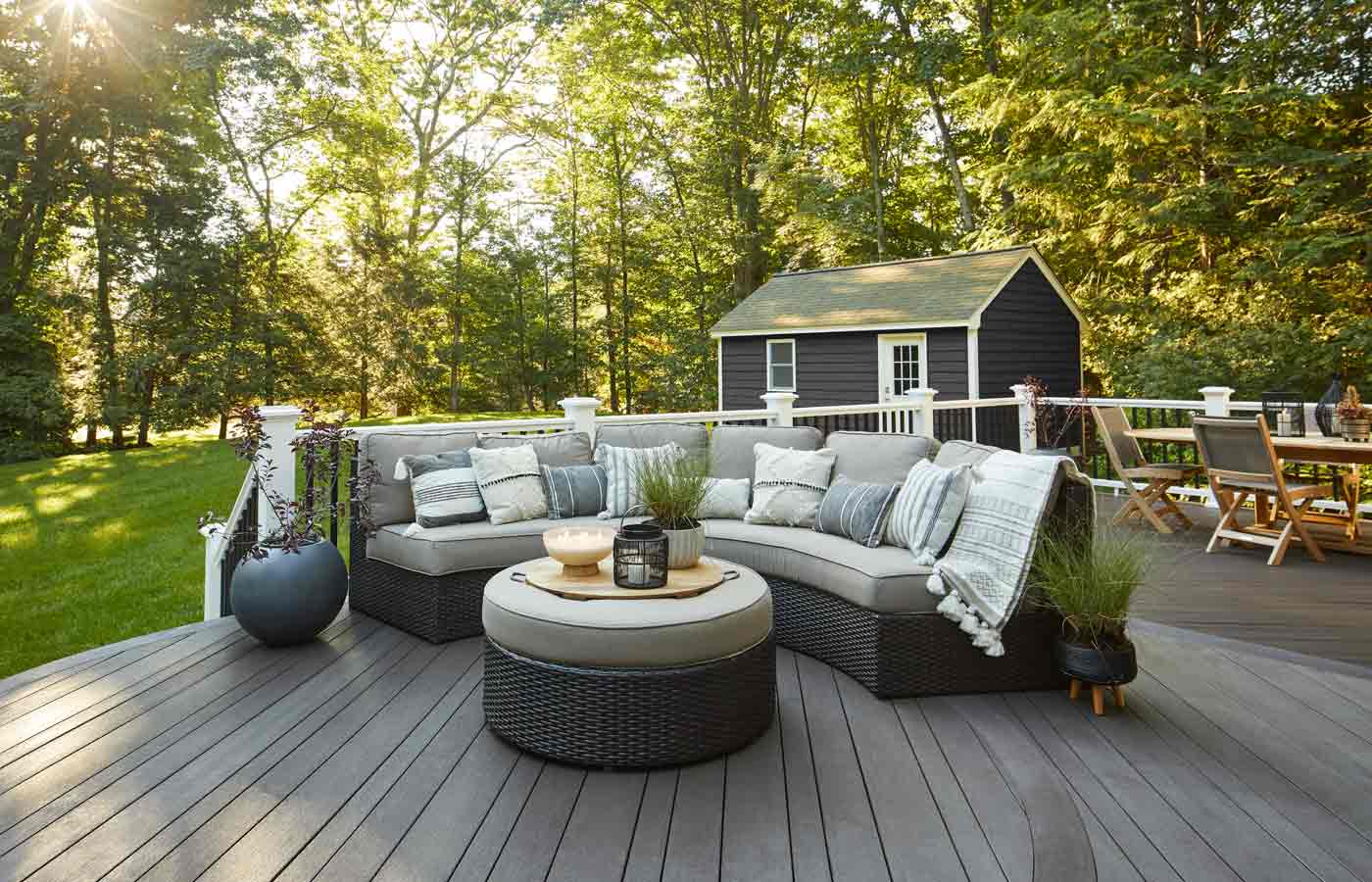
PVC Decking Pros
-
Longest-lasting lifespan, with a 50-year warranty from TimberTech
-
Inherently moisture-resistant and mold-proof since it has no organic material, like wood, in either the cap or the core
-
TimberTech’s PVC line offers the most realistic colors, surface textures, and grain patterns of all engineered wood products
-
Virtually maintenance-free—no splintering, peeling, or warping requiring repair; occasional cleaning is the only maintenance needed
-
Weighs less than wood or composite decking, making it manageable to transport and install for DIY projects
-
Polyvinyl chloride is 100% recyclable; even after 50 years, deck boards can be recycled into new decking material, so it’s a very sustainable product.
-
Cooler in summer than many composite decking products and natural wood
PVC Decking Cons
-
More expensive up front than composite decking
-
Low-quality PVC looks unrealistic and fades or stains easily
Composite Decking
What is Composite Decking?
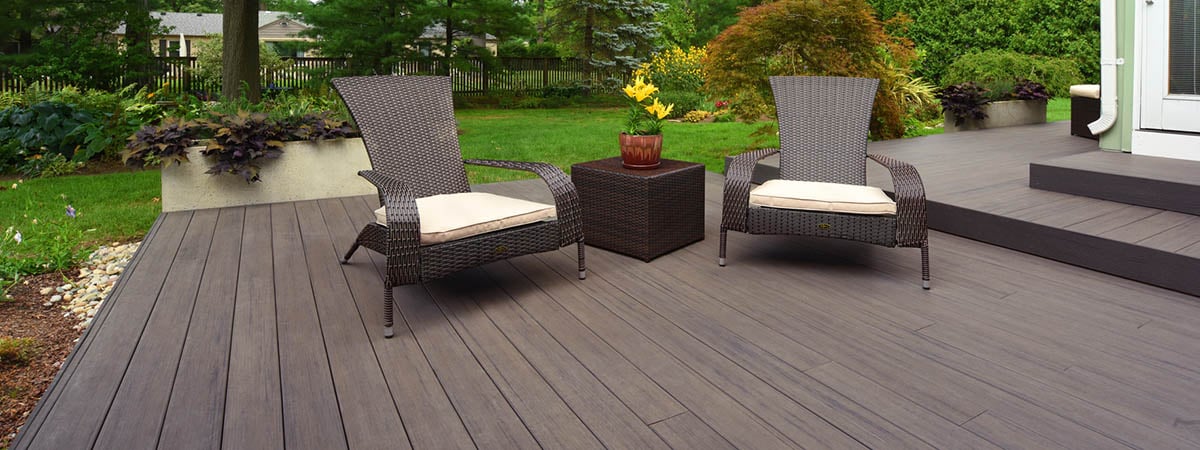
Composite decking boards are engineered using a combination of wood fibers and recycled plastic polymers that are extruded to form individual deck boards. The boards are wrapped with an outer layer of polymers to protect them from the weather. The introduction of plastics into the wood material creates a board that is moisture-resistant and insect-proof, resulting in a deck that has up to twice the lifespan of natural wood. Like PVC decking, composite decking’s unique manufacturing process allows for a wide range of colors and wood grain effects.
For more details, check out our Ultimate Guide to Composite Decking.
Composite Decking Pros & Cons
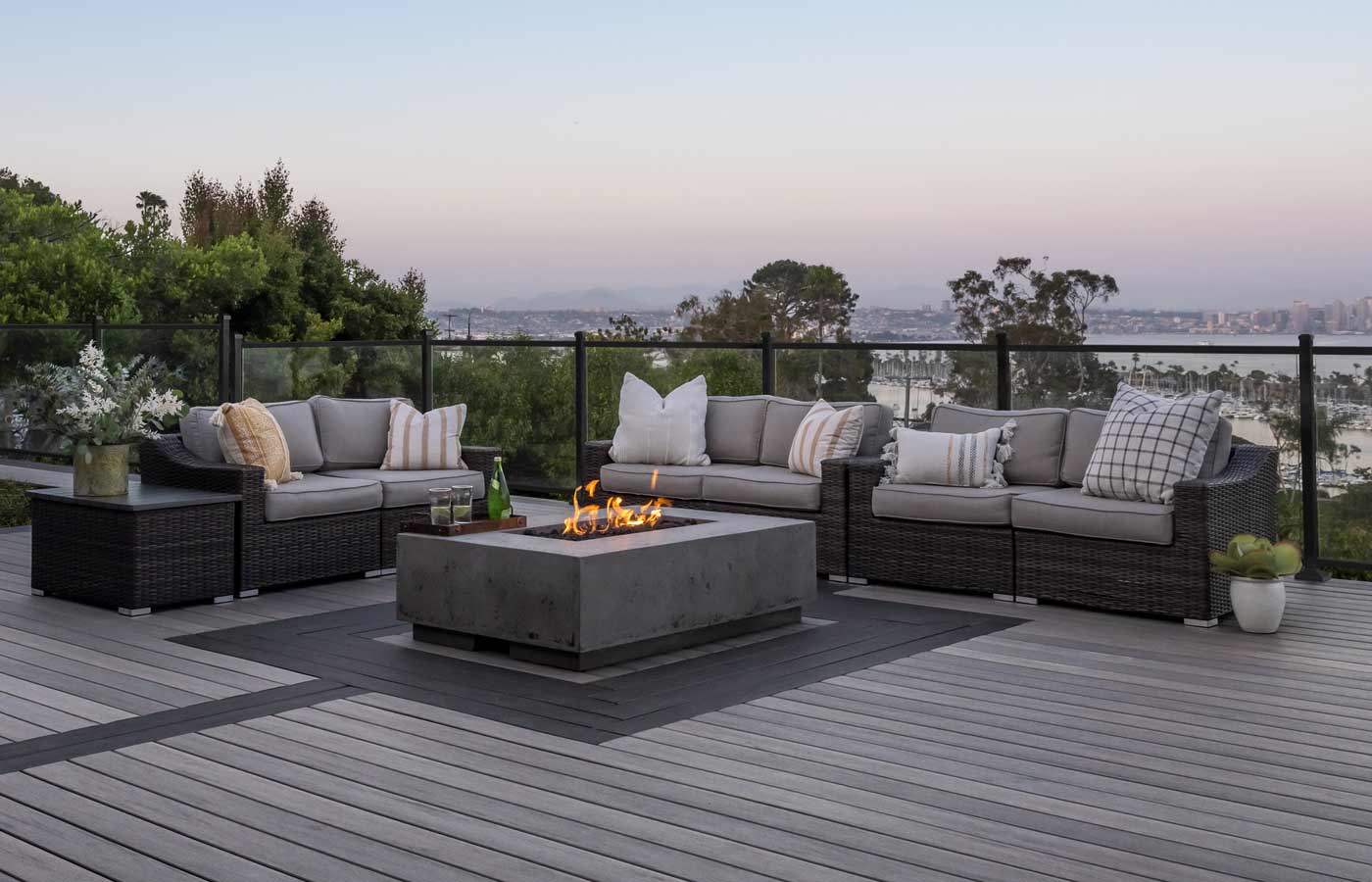
Composite Decking Pros
-
Extremely durable lifespan, with a 30-year warranty from TimberTech
-
Moisture-resistant and mold-proof when fully capped and protected by TimberTech’s high-performance Mold-Guard technology
-
Highly slip-resistant, making it a good choice for pool areas or rainy locations
-
Available in a wide range of realistic nature-inspired colors, surface textures, and grain patterns
-
Virtually maintenance-free—no splintering, peeling, or warping requiring repair; occasional cleaning is the only maintenance needed
-
Heat-resistant and engineered with protection from UV rays
-
Offers durability and sustainability at a more affordable price than PVC decking
Composite Decking Cons
-
Uncapped composite decking leaves composite deck boards vulnerable to moisture or rot over time
-
Some product lines may appear less realistic than PVC
-
Composite deck boards are heavier than PVC and wood decking so they can make a DIY project harder to handle
-
Higher upfront cost than most pressure-treated lumber decks
What does it mean for composite decking to be capped?
Capped deck boards have a hard outer shell made from plastic polymers to provide extra protection against water, stains, and UV damage. This hard, synthetic wrap or “cap” guarantees a scratch-resistant, fade resistant, and low-maintenance decking product.
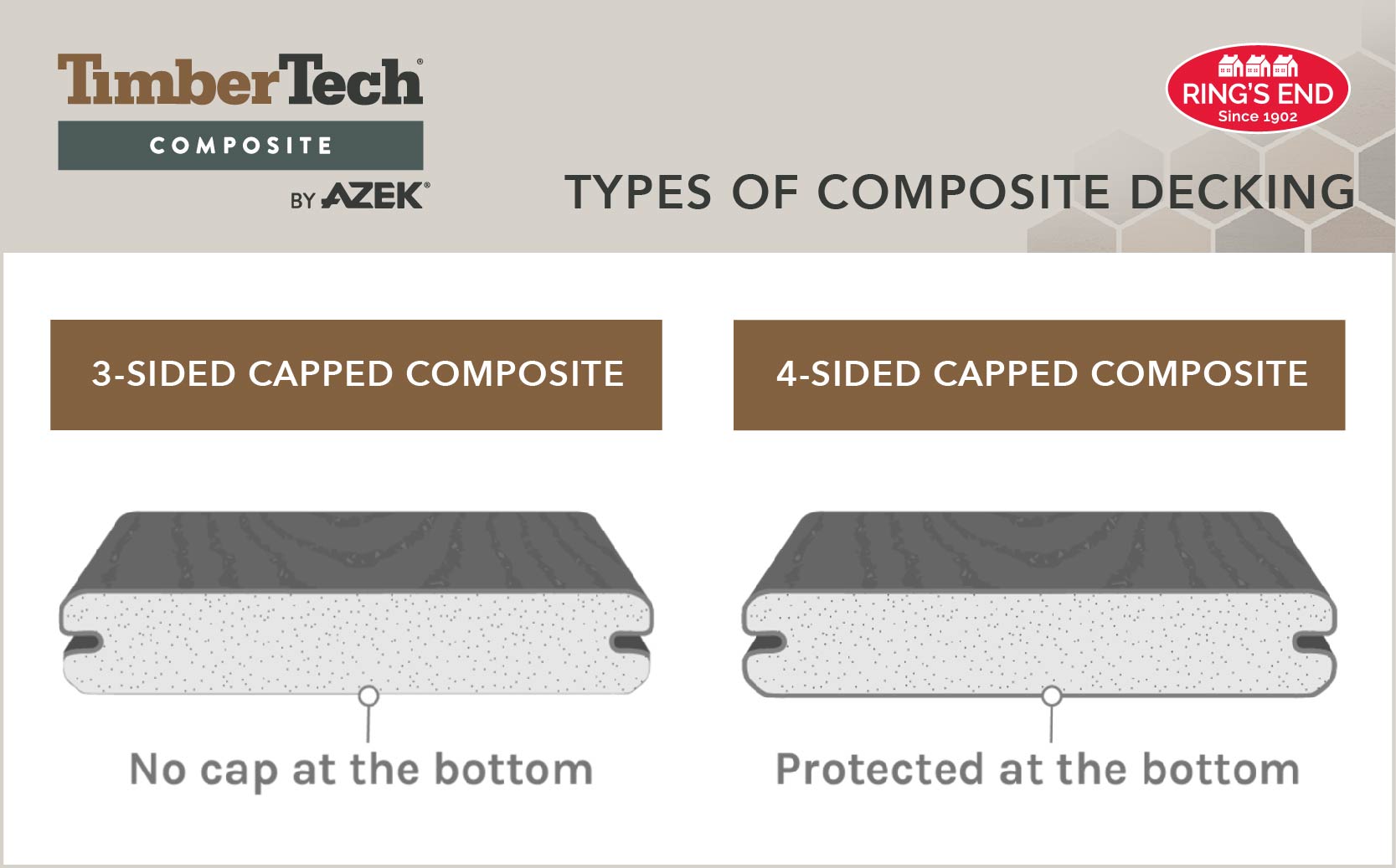
While uncapped decking is more affordable, it is also vulnerable to staining, fading, weathering and mold growth because it leaves wood fibers exposed to the elements. Both composite decking and PVC decking can be capped or uncapped, with varying levels of performance, so it’s important to research the options before choosing your decking materials to ensure the brand you purchase offers the right protection.
TimberTech offers deck boards that are capped on three sides to protect the upper surface and edges, or on all four sides for superior protection.
Final Analysis: How does PVC decking compare to composite decking?
Which type of decking is right for you ultimately depends on your budget and design preferences. PVC and composite decking share many similar qualities. Both are durable, low maintenance, cost-effective, insect and moisture resistant, and available in realistic wood looks. When it comes to sustainability, there’s little difference in PVC decking vs composite — any engineered decking is substantially more sustainable than a traditional wood deck. However, PVC offers a more realistic wood look than composite decking, and will outlast composite wood due to its fully-synthetic construction.
Shop TimberTech Decking at Ring’s End
Here at Ring’s End, we offer an unparalleled selection of building materials both in-store and online. We’re proud to offer TimberTech products, because we know that homeowners have confidence in their 25-50 year product warranty. To learn more about our selection of TimberTech decking options, check out our product guide or reach out to one of our expert sales representatives through our chat!



